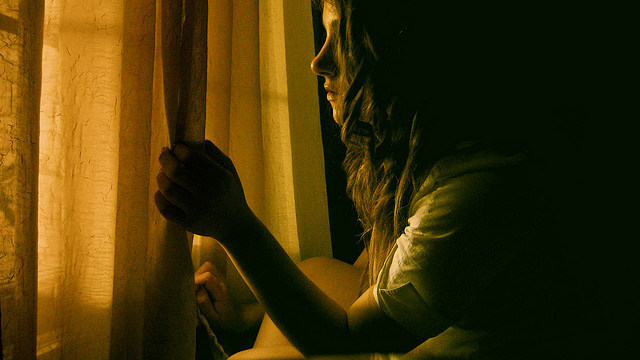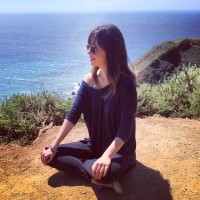
I remember it was a beautiful day, the day I lost her.
The sun was bright, and the roses that lined our home’s front porch permeated the May air with a sweet fragrance. I was paralyzed at the thought of a life with her.
She was sick for over five years, yet I didn’t see it coming.
I was 17—a selfish, reckless and desperate age, caught in the whirlwind that is adolescent emotion. Denial, to the point that my mom battled a devastating cancer for five years, and yet I was shocked when she was missing from the dinner table…
Fast-forward five years—I’m 22 years old. This is the age when the complicated mother-daughter relationship seems to find some semblance of peace.
All around me, mothers and daughters are brunching, happy hour-ing, and daughters are posting Instagram odes to the woman who taught them everything they know.
As I witness these candid moments of the mother-daughter bond, it can be difficult not to be angry—hard not to feel abandoned.
I have to make do with the 17 years I had—move forward with the composite of memories and make believe that I cling too. Then I think of all I have learned, the majority of which cannot be taught.
I will have to settle for thanking my mom for teaching me a hell of a lot while she was still living, but possibly even more once she was gone…
This is what I have learned in the five years since my mother has been gone:
You Will Find Strength You Didn’t Know You Had.
Tragedy, adversity and hurt-it-all scars—it comes in all shapes and sizes and affects all walks of life.
In a way, it is the great unifier. Inevitably, there will be a time in all of our lives when it all just falls apart. Whether it is the life that you created or the life that was created for you—it is fragile.
Most of us do not know our strength until we are tested. You find strength in the most unexpected of places. I truly believe there is nothing more painful than watching a parent deteriorate right in front of your eyes. Although my mom’s death has been the most defining and painful experience of my existence, it has changed me in so many ways and because of it I have become a stronger and (ironically) a better person.
There is Beauty in Darkness.
This is possibly the most important lesson I have learned. When I lost my mom, I was unbelievably frightened. I was 17—I hadn’t even grown boobs yet! I had never worn high heels. My ears weren’t pierced. How was I supposed to navigate the complicated (and in my case incredibly awkward) path of early adulthood without the person who mattered most to me?
The discovery, about two years into my grief, that I could still find happiness, humor, and beauty in the midst of her passing allowed the broken bits and pieces of my world to reconcile.
It was as if my body had been holding in a massive collective sigh for the past two years, and it had been finally been released. The pressures, sadness, and confusion diminished as I realized that I could take the event of my mom’s death and learn from it, not drown because of it.
You Are Never Truly Alone.
After she died, I felt like a huge burden—to my friends and even at times to my family.
I recognized that the depth of the sadness I was feeling was serious. It was anger I had never felt before and as hard as I tried I could not wrap my head around it. I could not make sense of it.
I decided then that I would not let my family or my friends see how badly I was hurting. The thought of making my well being something that they had to worry about frightened me. I had always prided myself on my independence and I felt like I was one breakdown away from losing all of that. While I did not rely on those close to me as much as many do during the grieving process, their presence was not lost on me.
Ultimately, I learned that I grieved internally. I worked through some really f*cked up thoughts and resentments within myself, but I was comforted knowing that my people were there.
At the end of the day, six months after she was gone, I could still call my best friend and we could talk about the why the boy I liked didn’t comment on my profile picture. Normalcy—it was how I knew I was not alone.
Time Happens.
Many people told me that time would guide me to recovery. Associating time with recovering is tricky advice. There is an ending of a chapter and a beginning of another—a changing of landscapes.
Grief is not the 7:30 to Buffalo, and recovery is not the destination.
Sometimes I still find myself wrapped up in the tragedy of her death—recalling those final painful moments, crafting the words I should have said, romanticizing her life and my place in it.
The emotion of loss is a hard one to shake. I walked around for months feeling as if I was still losing her.
It was like every day that passed was one day further from when she was still with me. Time is tricky. At first I fought it, then I longed for it to pass more quickly. Neither of these strategies elicited much reprieve—time happens you simply have to happen with it.
I Wrote Things Down.
Writing was a huge part of grieving my mom.
The first month, I wrote her a letter almost every day. As time passed the frequency of the letters lessened, and I began to write to her only on momentous occasions—birthdays, graduations, Mother’s Day or the anniversary of her death—I pull out the tattered journal and begin a new letter.
This habit has resulted in a detailed documentation of my grief.
Raw unfiltered thoughts, stories, and letters that tell the story of a daughter’s love, a mother’s death, questions and longing.
I have always felt strange sharing this ritual with others because it is often misconstrued as morbid and dark, but because writing has always been a part of how I process life, I cannot imagine where I would be without writing it all down.
Loss can be lessened through expression—whatever that expression is, don’t stifle it.
Relephant Read:
First Mom-Less Mother’s Day.
~
Author: Grace Marvin
Assistant Editor: Yoli Ramazzina/ Editor: Catherine Monkman
Photo: Flickr/Jenna Carver










Read 0 comments and reply